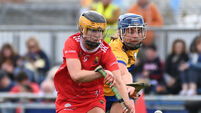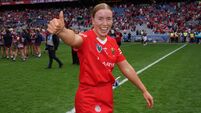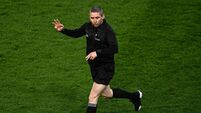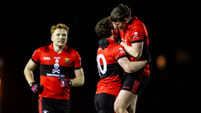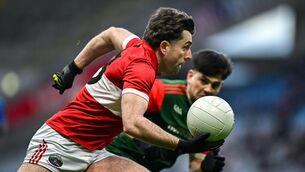Veronica Curtin: 'The bus stopped in Athlone and we walked across the Shannon with the cup'

WHEN WEST WAS BEST: The Galway team that won the 1996 All-Ireland camogie final. Back row, from left to right: Ann Broderick, Pamela Nevin, Louise Curry, Olive Costello, Sharon Glynn, and Olivia Broderick. Front row, from left to right: Carmel Hannon, Veronica Curtin, Imelda Hobbins, Martina Harkin, Dympna Maher, and Denise Gilligan.




